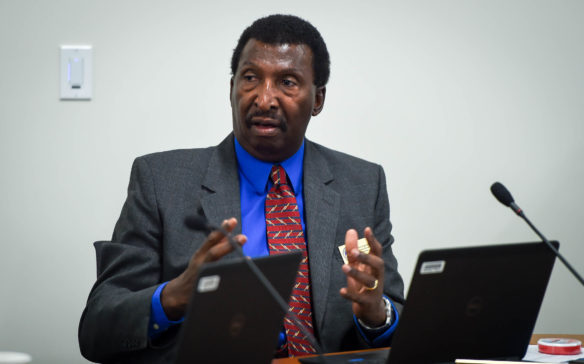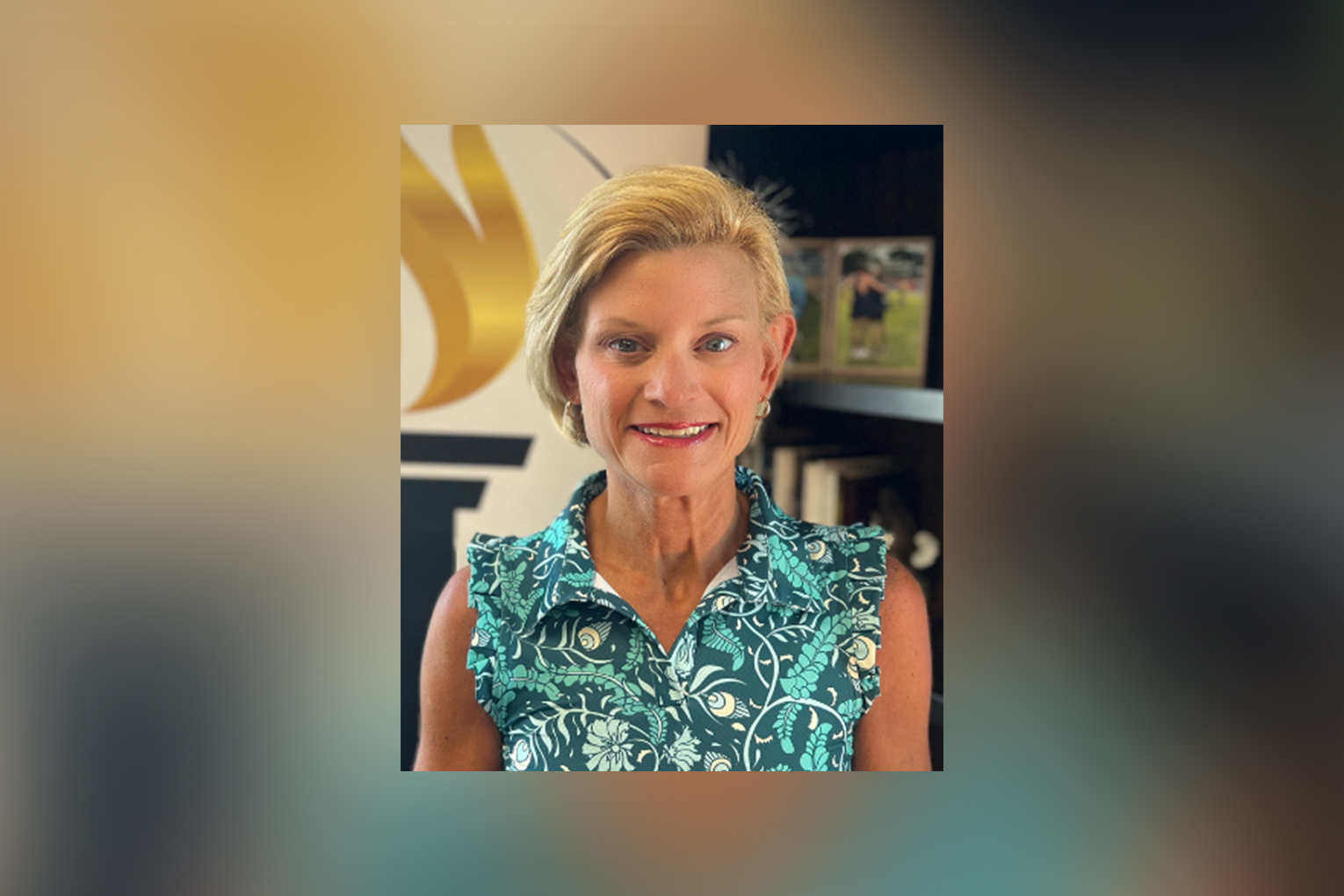
Milton Seymore of Louisville is one of five new members of the Kentucky Board of Education. The grandson of a teacher, Seymore learned early in life that education was the key to success.
Photo by Bobby Ellis, Nov. 28, 2016
By Jennifer Ginn
Jennifer.ginn@education.ky.gov
Milton Seymore is always rooting for the underdog.
Seymore grew up during the 1950s in the racially charged atmosphere of a segregated Arkansas. The grandson of a teacher, Seymore learned early in life that education was the key to success regardless of a person’s race. It’s a lesson that led him to earn a bachelor’s degree in philosophy from the University of Arkansas-Pine Bluff in just three years after he served a tour of duty during the Vietnam War.
Now a resident of Louisville, Seymore continues to try to help others. He has been active in the Jefferson County community as chairman of the Justice Resource Center, which helps promote community economic justice and eliminate discriminatory economic practices. Seymore also serves on the Board of Directors for Kentucky Youth Advocates, a nonprofit that promotes policies and investments that are in the best interest of children.
Seymore retired from the Ford Motor Co. in 2005 after a 29-year career. He currently serves as pastor of Energized Baptist Church. He was one of five new members appointed to the Kentucky Board of Education earlier this year.
Kentucky Teacher staff had a chance recently to ask Seymore about his priorities while serving on the Kentucky Board of Education. Here’s what he had to say.
Why were you interested in serving on the Kentucky Board of Education?
“I want to be a part of this 21st-century, the technological era. I feel that I can be a part of this innovation that’s going to change this state from the backseat to the front seat.
“I’m concerned about the dual credit program. When a person graduates from high school and receives a diploma, I want it to mean something. A diploma should mean you have a choice in the type of career that you want to pursue.”
What impact do you hope to have on the board?
“I hope to bring new ideas to the 173 school districts and the Kentucky School for the Blind and the Kentucky School for the Deaf. I want all of our children to be able to compete in this marketplace.”
What personal trait will serve you best as a board member?
“I’m a problem-solver and I know how to work with others. I am not a person that is satisfied with just anything, but desires excellence. I want the best for all of our children.”
Other than more money, what do Kentucky schools need most?
“They need a learning environment and people that care about the next generation. Every child also needs a mentor. We must have counselors who are able and willing to help our children reach their goals.”
What are the biggest challenges facing Kentucky’s schools?
“Most of us our school buildings are old, outdated and average more than 60 years old. We also do not have enough teachers in certain districts.”
What small change would have the greatest impact on Kentucky’s schools?
“I believe that we need to recruit more people out of the community that are able to assist children in reaching their goals.”
What major change would you make to improve Kentucky schools?
“We need to have conversations with the Kentucky Chamber of Commerce. We need to cover all of the bases, academic as well as vocational knowledge.
“We need to begin to train for the future. We need to start talking to children at an early age about what they want to do or what do they want to become!”
Who was your favorite teacher and why?
“My 5th-grade teacher, Mrs. Higgins! She always had time to explain. Every question you asked her was a good question. She encouraged her students to ask questions.
“She had a way of making you feel like you were the only child in the room and she was that way with everyone.”
Other than parents and teachers, what do you believe has had the biggest impact on Kentucky students’ education in the past few years?
“Technology gives students the chance to access so much knowledge at the end of their fingertips. No matter where you, are as long as there is a cell tower and Wi-Fi, you have access to all of that knowledge. There are so many opportunities available, like using social media to talk to young people all around the world.”
One of the Kentucky Department of Education’s priorities is to address the achievement gap. How do you think we can do that?
“That is a question I have been looking at for years. Students that are in the same classroom can have a 15- to 20-point gap. I think it’s time to start interviewing students and ask questions. Is there something wrong with the testing, how are the questions being asked?
“I think we need to look at every child at every school. I’m trying to determine what has happened. Did they all start out at with the same skills in kindergarten?”
What else would you like Kentucky’s educators to know about you?
“My grandmother was a schoolteacher in an old one-room schoolhouse. A couple of my aunts and an uncle were school teachers as well.
“I grew up in the South when there was a segregated America. I was taught education was freedom! It was something no one could ever take away from you. Failure wasn’t an option.”




All Uncle Milton did was state the obvious. What I didn’t hear were any ideas regarding how these issues were going to be resolved.
Well said Uncle Milton.